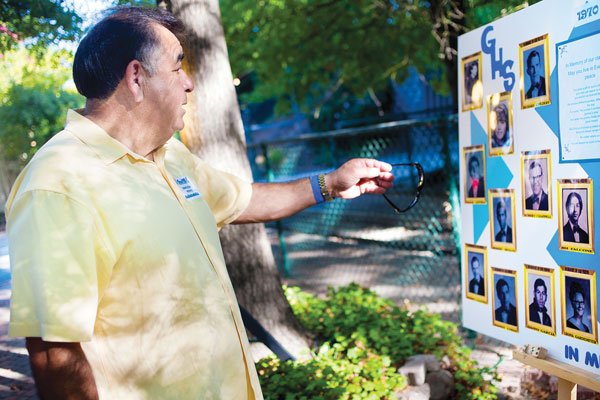”
9-1-1 emergency, what are you reporting?
”
These or similar words are the standard question asked when a
9-1-1 call is answered. Hopefully, you’ve never had to hear
them.
“9-1-1 emergency, what are you reporting?” These or similar words are the standard question asked when a 9-1-1 call is answered. Hopefully, you’ve never had to hear them. But if so, it’s easy to forget how much you rely upon the expertise of the person on the other end of the phone answering your 9-1-1 call.
An Oct. 7 Dispatch article tells that a veteran Gilroy emergency 9-1-1 dispatcher apparently was distracted by another call and forgot to pass on a runaway truck report to the California Highway Patrol and paramedics on Aug. 26. This very unfortunate incident may have contributed to the death of a Gilroy resident who had suffered some sort of debilitating attack while driving his truck near Saint Louise Hospital, and drove into a ditch. While the accident was witnessed and a call was made – possibly first to 4-1-1 – the accident was not dispatched for emergency units to respond until more than an hour had passed after the call was received at the Gilroy Police Department. Lest we judge too quickly in remembering this unfortunate incident, let’s look at a dispatcher’s job.
Dispatchers (or communications operators) are like many others professionals these days who work around the clock. A police/fire communications center needs to be staffed 24 hours a day, seven days a week, 365 days a year. The center never closes – not for weekends, nights or holidays. Not during disasters, illness or death. It doesn’t matter if there is one person or three working, most dispatchers are overworked and working one hour can feel like eight, I’ve been told by my daughter who is a veteran communications operator in Ventura. A dispatcher’s job is never done until she or he walks out the door at shift’s end. Even then, dispatchers usually don’t know the outcome of most of the calls they’ve taken, so the feeling of ‘completion’ for a day’s work is normally a missing element.
These people are the heartbeat of a police and fire department. Every day they work they wear several different hats all at once. They are counselors, therapists, parents, babysitters, peacemakers, mediators and information providers. They give advice and directions. They are yelled and cursed at. They deal with people who just want someone to talk to or who just want to complain about something – or anything.
They are there for chronic callers (and they know these people on a first-name basis), upset parents, irate neighbors, home and business owners, drunks, transients, the mentally ill, suicidal people and so often just the outright uncooperative and rude public. They are often required to be on duty from eight to 10 hours, and in some cases as much as 16 hours a day, since a communications center can never stay fully staffed. They call cabs, ambulances, hospitals, coroners, utility companies, animal control, CalTrans, parole and probation officers, other police agencies, state and federal agencies, as well as alarm and security companies. They have to deal with their computer equipment not working at times, freezing up, or even shutting down. Sometimes that even happens in the middle of a vehicle pursuit or a report of a man with a gun.
Dispatchers are suppose to be the “fix-all” when someone calls, and they are usually the target of the person on the other end of the line, since they are first to answer the phone. They have to deal with, figure out, and then establish what a reporting person sees or hears and then put it down quickly in writing to communicate to the police or fire units responding.
In most cases they get little to minimal or even no good information or descriptions. It then becomes a “20 questions” ordeal to figure out what is truly happening. Often, people don’t know where they are or pay little attention to what is occuring and just want the police to respond “now.” Many callers have no patience when questions are asked of them. Dispatchers have to filter out the unimportant answers and somehow establish what is important usually within seconds. And that can mean the difference between life and death.
So, can you begin to understand why job burnout is high for dispatchers? Next week, more on the frustrations a 9-1-1 dispatcher must endure, even here in Gilroy.
James Fennell is a local Realtor. He has lived in Gilroy for three years. E-mail him at je*******@*****ch.com.












